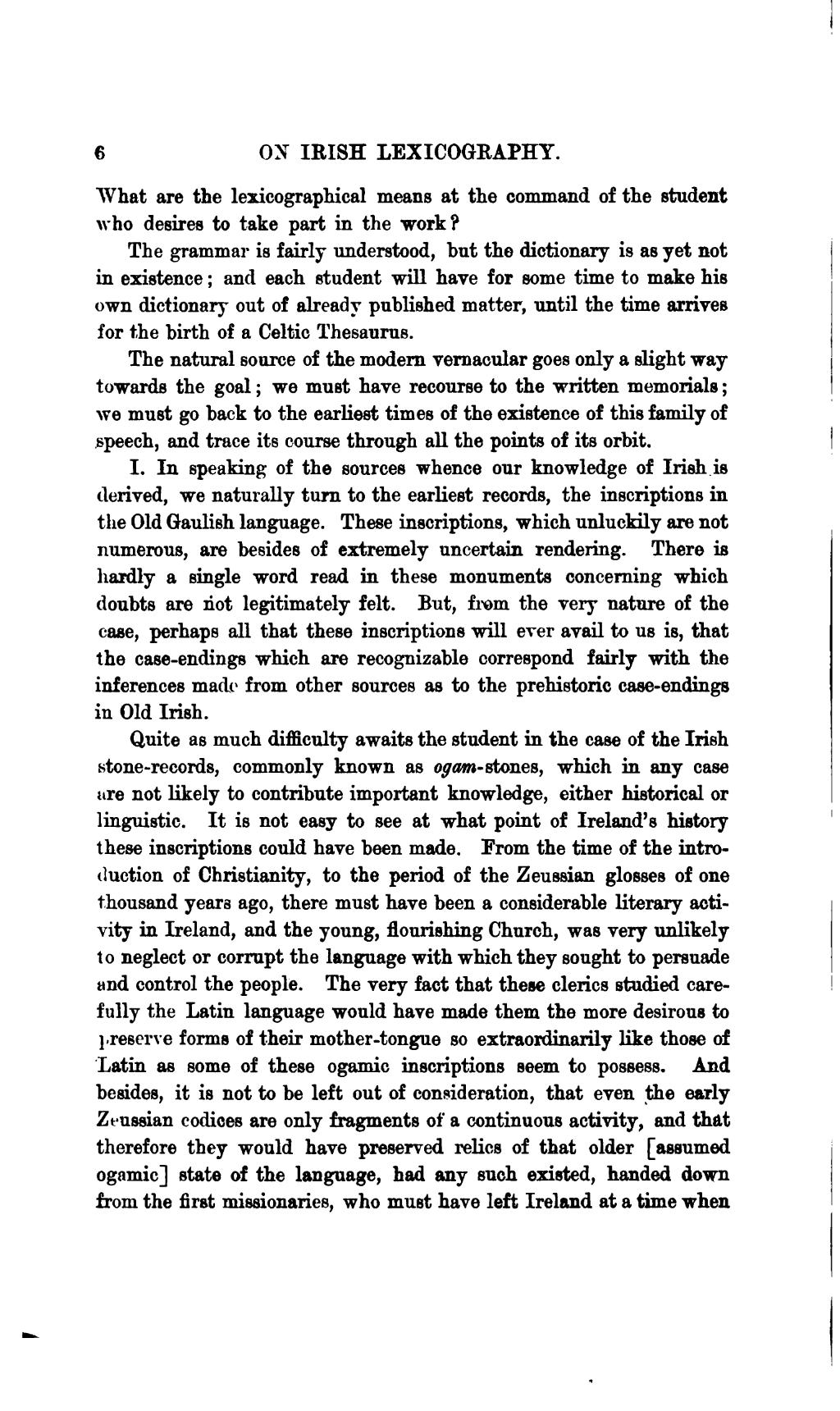What are the lexicographical means at the command of the student who desires to take part in the work?
The grammar is fairly understood, but the dictionary is as yet not in existence; and each student will have for some time to make his own dictionary out of already published matter, until the time arrives for the birth of a Celtic Thesaurus.
The natural source of the modern vernacular goes only a slight way towards the goal; we must have recourse to the written memorials; we must go back to the earliest times of the existence of this family of speech, and trace its course through all the points of its orbit.
I. In speaking of the sources whence our knowledge of Irish is derived, we naturally turn to the earliest records, the inscriptions in the Old Gaulish language. These inscriptions, which unluckily are not numerous, are besides of extremely uncertain rendering. There is hardly a single word read in these monuments concerning which doubts are not legitimately felt. But, from the very nature of the case, perhaps all that these inscriptions will ever avail to us is, that the case-endings which are recognizable correspond fairly with the inferences made from other sources as to the prehistoric case-endings in Old Irish.
Quite as much difficulty awaits the student in the case of the Irish stone-records, commonly known as ogam-stones, which in any case are not likely to contribute important knowledge, either historical or linguistic. It is not easy to see at what point of Ireland's history these inscriptions could have been made. From the time of the introduction of Christianity, to the period of the Zeussian glosses of one thousand years ago, there must have been a considerable literary activity in Ireland, and the young, flourishing Church, was very unlikely to neglect or corrupt the language with which they sought to persuade and control the people. The very fact that these clerics studied carefully the Latin language would have made them the more desirous to preserve forms of their mother-tongue so extraordinarily like those of Latin as some of these ogamic inscriptions seem to possess. And besides, it is not to be left out of consideration, that even the early Zeussian codices are only fragments of a continuous activity, and that therefore they would have preserved relics of that older [assumed ogamic] state of the language, had any such existed, handed down from the first missionaries, who must have left Ireland at a time when

